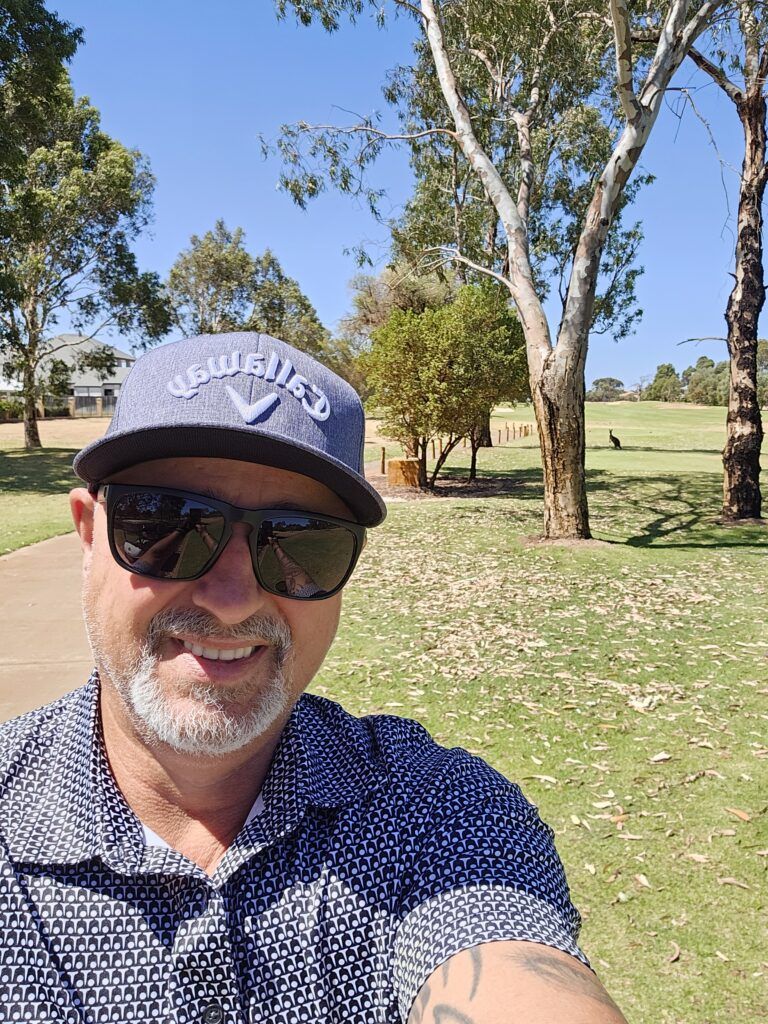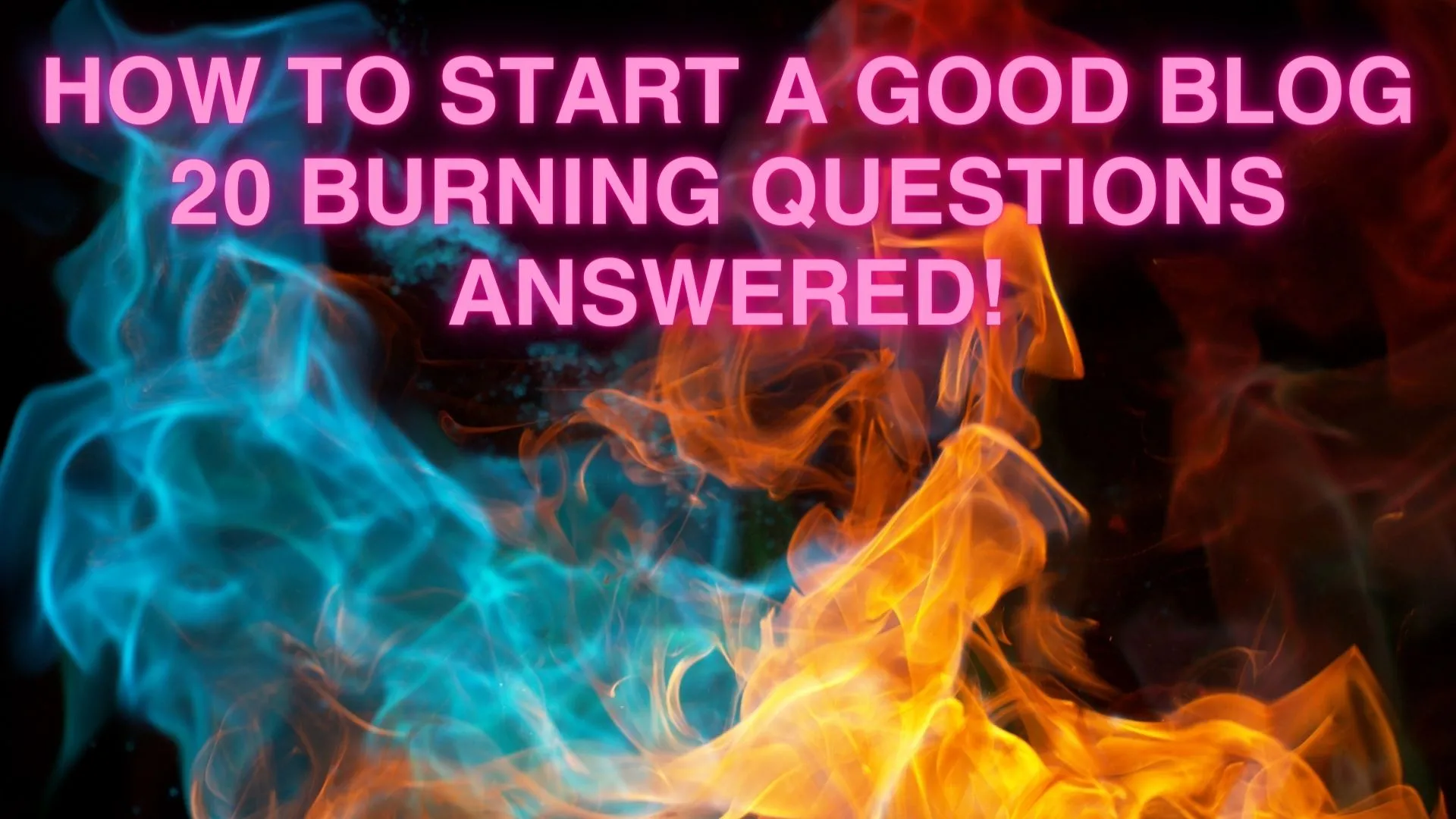“Have you ever wondered how to start a good blog? The kind that not only attracts a multitude of readers but keeps them coming back for more. You’re not alone. In today’s digital era, the art of blogging has transformed from a mere hobby into a dynamic platform for sharing ideas, creating communities, and even launching businesses. But where do you begin? This blog post is here to unveil the secrets.
Embarking on the journey of how to start a good blog can feel like standing at the base of a towering mountain. It’s exhilarating yet daunting. But fear not! We’re about to answer 20 burning questions that will equip you with the tools and knowledge to not just start, but to thrive. From choosing the perfect niche to understanding the intricacies of SEO, we’ve got you covered.
Why should you trust us? Because we’ve been in your shoes. We’ve faced the same dilemmas and navigated the same complexities you’re about to encounter. This isn’t just about laying out technical steps; it’s about igniting a passion and guiding you through a journey of creativity and connection. Our mission is to demystify the process of how to start a good blog and transform it into an achievable, exciting venture.
So, whether you’re a seasoned writer seeking to venture into the digital world, or a curious enthusiast ready to dip your toes into the blogging ocean, this post is your starting line. Get ready to dive into the world of blogging, where every question you have is an opportunity for growth. Let’s begin this adventure together!”
Hey there, future blogging superstar! Welcome to your first step towards becoming a blogging sensation. Today, we’re diving into the exciting world of blogging – from zero to hero. So, if you’ve ever wondered how to start writing for a blog… Read More>>

Question #1 – How Can I Start Blogging as a Beginner?
Starting a blog as a beginner might seem daunting at first, but with the right steps, it can be a fulfilling and enjoyable journey. Here’s a guide on how to start a good blog, especially tailored for beginners:
- Identify Your Passion or Niche: The first step in learning how to start a good blog is to decide what you want to blog about. Your niche should be something you are passionate about or have expertise in. It could be anything from cooking, travel, technology, to personal development. A focused niche can attract a dedicated audience.
- Choose a Blogging Platform: For beginners, user-friendly platforms like WordPress, Blogger, or Wix are great choices. They offer customizable templates and intuitive interfaces. WordPress, for example, is highly popular due to its flexibility and a wide array of plugins.
- Select a Domain Name and Hosting: Your domain name should be unique and reflect your blog’s theme. Once you have a domain name, choose a reliable hosting service. Many platforms offer domain registration and hosting services combined.
- Design Your Blog: Make your blog visually appealing. The design should be clean, easy to navigate, and representative of your blog’s theme. Most blogging platforms offer customizable themes and layouts.
- Create Quality Content: Content is king. Write engaging, informative, and original content. Ensure it’s well-researched and provides value to your readers. Incorporating multimedia like images, videos, and infographics can make your posts more engaging.
- Learn Basic SEO: Understanding the basics of Search Engine Optimization (SEO) is crucial in how to start a good blog. Use relevant keywords, optimize your images, and create quality content to improve your blog’s visibility on search engines.
- Promote Your Blog: Use social media, email newsletters, and connections with other bloggers to promote your blog. Engaging with your audience through comments and social media also helps build a community around your blog.
- Monetize Your Blog: Once you have a steady flow of traffic, consider monetizing your blog. This can be done through advertising, sponsored content, affiliate marketing, or selling your products or services.
- Be Consistent: Regularly update your blog with new content. Consistency is key in keeping your audience engaged and attracting new readers.
- Stay Patient and Learn Continuously: Growth takes time. Be patient, and don’t get discouraged by initial challenges. Keep learning new blogging strategies and adapting to changes in digital trends and your audience’s preferences.
Remember, the journey of how to start a good blog is unique for everyone, and success doesn’t happen overnight. It’s a continuous learning process, filled with trials, errors, and improvements. Stay dedicated, be authentic, and most importantly, enjoy the process!
Question #2 How do you Start a Good Blog Post?

Starting a good blog post is a crucial aspect of blogging, as it sets the tone for your readers and determines whether they’ll be engaged enough to read through the entire piece. Here’s a guide on how to start a good blog post effectively:
- Start with a Compelling Headline: Your headline is the first thing readers see, so make it catchy and intriguing. It should give a clear idea of what the post is about while also piquing the reader’s interest.
- Open with a Hook: The opening lines of your blog post should grab the reader’s attention. This could be a surprising statistic, a thought-provoking question, an interesting fact, or a relatable anecdote. The aim is to engage the reader right from the start.
- Introduce the Topic Clearly: Early in your post, clearly state what the article is about. This helps set the reader’s expectations and assures them they’re in the right place, especially if they’re seeking information related to how to start a good blog.
- Address the Reader’s Intent: Think about what your readers are hoping to get from your post. Are they looking for information, entertainment, or solutions to a specific problem? Tailor your introduction to meet these needs.
- Showcase the Value: Briefly outline what the reader will gain by reading the post. Whether it’s learning a new skill, understanding a concept, or being entertained, make it clear what’s in it for them.
- Use an Engaging Tone: Your writing style can make a big difference. Use a tone that resonates with your audience, whether it’s formal, conversational, humorous, or inspirational.
- Incorporate Keywords Thoughtfully: While it’s important for SEO to include keywords like “how to start a good blog”, make sure they fit naturally into your text. Overstuffing keywords can make your post read unnaturally and turn off readers.
- Set the Stage: Provide any necessary context or background information that the reader needs to understand the rest of the post.
- Transition Smoothly into Your Main Content: End your introduction with a smooth transition that leads the reader into the main body of the post. This could be a summary of what will be covered or a direct lead-in to your first main point.
- Keep It Concise: A good introduction should be brief but effective. It should provide enough information to hook the reader without overwhelming them or giving away too much of the article.
Question #3 How do I start a blog in Australia?

Starting a blog in Australia involves a set of steps tailored to the unique digital landscape and audience in the country. Here’s a guide on how to start a good blog in Australia, keeping in mind the local nuances:
- Understand Your Audience: Before you begin, understand the Australian audience. Research their interests, online behavior, and preferences. This helps in tailoring your content to resonate with them.
- Choose an Australian-Friendly Blogging Platform: Select a blogging platform that is popular and easily accessible in Australia. Platforms like WordPress, Blogger, and Squarespace are widely used and offer various customization options.
- Register a .au Domain Name: Having a .au domain can boost your credibility and search engine ranking within Australia. Ensure that your domain name is memorable and reflective of your blog’s content.
- Host with a Reliable Provider: Choose a hosting provider with a strong presence in Australia. Local hosting can lead to faster loading times for your Australian audience. Look for providers with good customer support and uptime records.
- Comply with Australian Online Laws: Be aware of the legal requirements for online content in Australia, including copyright laws, privacy policies, and consumer protection guidelines.
- Create Engaging and Relevant Content: Write posts that are relevant to an Australian audience. Whether it’s local news, events, or cultural topics, content that resonates with the local audience will likely attract more readers.
- Incorporate Local SEO Strategies: When focusing on how to start a good blog, employ SEO strategies that target an Australian audience. Use keywords that Australians are likely to search for, and list your blog on local directories.
- Engage with the Australian Blogging Community: Connect with other Australian bloggers. This network can be invaluable for support, collaboration, and increasing your blog’s visibility.
- Use Australian-Specific Monetization Strategies: If you plan to monetize your blog, explore options popular in Australia, such as affiliate marketing with local brands or advertisements tailored to the Australian market.
- Leverage Social Media Platforms Popular in Australia: Utilize social media platforms like Facebook, Instagram, and Twitter to promote your blog. Australians are very active on social media, and it’s a great way to increase your blog’s reach.
- Regularly Update Your Blog: Keep your content fresh and up to date. Regular updates will keep your audience engaged and help with search engine rankings.
- Monitor Your Blog’s Performance: Use tools like Google Analytics to track your blog’s performance. Pay attention to what works well with your Australian audience and adjust your strategy accordingly.
Remember, the key to how to start a good blog in Australia is understanding and catering to your local audience while maintaining a global appeal. Be patient and persistent, as building a successful blog takes time and dedication.
Question #4 Do Beginner Bloggers Make Money?
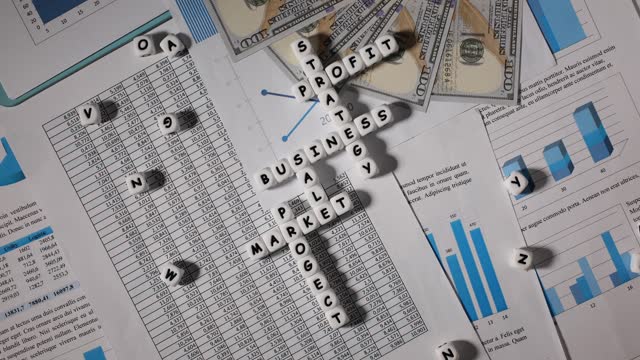
Do beginner bloggers make money? The straightforward answer is yes, but it’s not without effort and strategy. When you learn how to start a good blog and consistently apply best practices, monetization opportunities do arise, even for beginners.
The journey begins with creating a blog that stands out in its niche. As a beginner, the focus should be on generating high-quality, engaging content. This builds a loyal readership base, which is essential for any monetization strategy. Remember, the more targeted and engaged your audience, the higher your potential to earn.
In the initial stages, income might be modest. Beginners often start with monetization methods like affiliate marketing, sponsored posts, or Google AdSense. These methods can bring in revenue, depending on your blog’s traffic and audience engagement. For instance, affiliate marketing earns you a commission for promoting products or services to your readers.
Another key aspect is networking. Connecting with other bloggers and influencers in your niche can open doors to collaborative opportunities that can be monetized. Guest posting, for example, not only boosts your visibility but can also be a paid opportunity.
Moreover, offering digital products or services related to your blog’s niche is a popular way for beginner bloggers to earn. This could be e-books, online courses, or consulting services. As you gain more experience and your blog grows, these offerings can become a significant source of income.
Lastly, patience and consistency are crucial. It often takes time to start earning a significant income from blogging. The journey of learning how to start a good blog involves not just creating content but also understanding and implementing monetization strategies effectively.
So, while beginner bloggers may not make a lot of money right off the bat, with persistence, quality content, and smart monetization strategies, they can certainly start earning and grow their income over time.
Question #5 Is Blogging Still Profitable in 2024?

As of 2024, blogging remains a profitable endeavor, though the landscape has evolved significantly. The key to success lies in understanding how to start a good blog that stands out in an increasingly crowded digital space.
The profitability of a blog hinges on several factors, such as the niche you choose, the quality of your content, and your ability to engage and grow your audience. Niche blogs, especially those in high-demand areas like technology, health and wellness, personal finance, and lifestyle, have a higher potential for profitability due to targeted audiences looking for specific information.
Content is king in the blogging world. Creating valuable, informative, and engaging content is essential. A blog with high-quality content can attract a loyal readership, which is a critical factor for monetization. Whether through advertising, affiliate marketing, sponsored content, or selling digital products, a strong reader base can significantly boost profitability.
Another important aspect is diversification. Blogs that diversify their income streams tend to be more profitable. This might include a mix of advertising revenue, affiliate marketing, sponsored posts, selling digital products or services, and even conducting online workshops or webinars.
SEO (Search Engine Optimization) remains a vital tool. Understanding and implementing effective SEO strategies can increase your blog’s visibility, thereby attracting more traffic. More traffic often equates to higher earnings, especially when it comes to ad revenue and affiliate sales.
In the context of how to start a good blog in 2024, it’s also crucial to leverage social media and email marketing to promote your content and engage with your audience. These platforms can drive traffic to your blog and help build a community around it, which is beneficial for long-term profitability.
In conclusion, blogging can certainly be profitable in 2024, but it requires a strategic approach. Understanding your niche, creating quality content, diversifying income streams, and effectively using SEO and social media are key to turning a blog into a profitable venture.
Question #6 Do People Still Read Blogs?

Yes, people still read blogs, and they continue to be a significant source of information, entertainment, and inspiration for a wide range of audiences. Understanding how to start a good blog is crucial in capturing and retaining this readership in the current digital era. Here’s why blogs remain popular:
- Niche Expertise and Personalization: Blogs offer specialized knowledge and personal perspectives that are often not available through mainstream media. Whether it’s a hobby, industry insights, personal finance tips, or lifestyle advice, blogs can cater to specific interests, which attracts readers seeking expert information or relatable content.
- Search Engine Queries: A large number of internet users turn to search engines for answers to their questions, and blogs often provide these answers. Good blog content, optimized for search engines, can attract a substantial amount of traffic.
- Community Building: Blogs have the ability to create communities of like-minded individuals. People often read and engage with blogs where they find a sense of community and shared interests, especially in niche areas.
- Quality Content: Despite the rise of video and social media, there’s still a significant demand for written content. Readers who seek in-depth analysis, detailed explanations, or storytelling prefer the format of blogs.
- Educational Resources: Blogs serve as educational tools. From DIY projects to professional development, blogs offer step-by-step guides, how-to articles, and insightful commentary that readers find valuable.
- Platform for Keeping Updated: For many, blogs are a way to stay updated on trends, news, and developments in their area of interest. Bloggers who consistently provide current and relevant content can attract a regular readership.
In learning how to start a good blog, it’s important to recognize these aspects that draw people to blogs. By focusing on creating high-quality, relevant, and engaging content that serves a specific audience, bloggers can attract and retain readers even in a landscape crowded with various forms of digital content.
Question #7 What Should My First Blog Be About?

Deciding on the subject of your first blog post is a crucial step in the journey of how to start a good blog. Your first post sets the tone for your blog and begins to establish your voice and niche. Here are some ideas and considerations for your inaugural post:
- Introduction to Your Blog: Use your first post to introduce yourself and your blog. Explain what your blog will be about, why you started it, and what readers can expect in terms of content, style, and frequency. This helps set clear expectations.
- Your Personal Story or Journey: Share your story or the journey that led you to start the blog. This can create a personal connection with your readers and give them a reason to follow your blog.
- Discuss Your Blog’s Niche: If your blog has a specific focus (e.g., travel, food, technology), your first post could be an exploration of this niche. Discuss why you chose it, what fascinates you about it, and what unique perspectives you intend to bring.
- Solve a Problem: Think about common challenges or questions related to your blog’s theme and address one in your first post. This establishes your blog as a helpful resource right from the start.
- Share Your Vision: Write about what you hope to achieve with your blog. Whether it’s to inform, inspire, entertain, or create a community, sharing your vision can resonate with readers who have similar interests or goals.
- A Trending Topic in Your Niche: Starting with a hot topic can attract immediate interest. Make sure it’s something you’re knowledgeable about and passionate about discussing.
- A List or Guide: People love lists and guides as they are easy to read and often provide practical value. Your first post could be a “Top 10” list or a beginner’s guide related to your niche.
Remember, the key to how to start a good blog is not just about choosing the right topic, but also about presenting it in a way that’s engaging and reflective of your unique voice. Your first blog post is an opportunity to make a great first impression, so choose a topic that you’re passionate about and that will be of interest to your target audience.
Question #8 How Do Blogs Generate Income?

Blogs generate income through a variety of methods, and understanding these is a critical component in learning how to start a good blog that’s not just informative or entertaining but also financially rewarding. Here’s how blogs typically earn money:
- Advertising: One of the most common ways blogs generate income is through advertising. This can be direct banner ads, Google AdSense, or other advertising networks. Advertisers pay you either based on the number of views or clicks on the ads.
- Affiliate Marketing: Many bloggers earn money by promoting products or services and earning a commission for each sale or lead generated through their blog. This involves partnering with companies and including affiliate links in your blog posts.
- Sponsored Content: As your blog gains popularity, brands might pay you to write posts about their products or services. These sponsored posts are a way for companies to reach your audience, and for you to earn income by sharing your experience or opinion on the product.
- Selling Products or Services: Blogs can be a platform for selling your own products or services. This could include digital products like e-books, courses, or webinars, as well as physical products. Offering consulting or coaching services is also common.
- Memberships or Subscriptions: Some blogs generate income by offering premium content or exclusive access to resources for a membership fee. This could be a subscription model where readers pay a regular fee to access additional content, resources, or a community forum.
- Donations or Crowdfunding: Some bloggers use platforms like Patreon or PayPal to receive donations from their readers. This is more common for blogs with a dedicated following and those who provide content that’s considered valuable or unique.
related article – top blogging niches with high profit potential
Ah, the world of blogging! Where words are your currency and your niche is your kingdom. But let’s face it, not all kingdoms are created equal, especially in terms of… Read More>>

In the context of how to start a good blog that’s also financially successful, it’s important to choose monetization strategies that align with your blog’s niche and audience. Not every revenue stream will be suitable for every blog, and some may require a significant amount of traffic to be profitable. Building a strong, engaged audience and providing consistent, high-quality content are foundational steps before monetization can effectively take place.
Question #9 How Long Does it Take to Make $500 Per Month Blogging?

The time it takes to make $500 per month from blogging can vary significantly, and it’s closely tied to how effectively you implement strategies on how to start a good blog. There are several factors that influence this timeline:
- Niche Selection: The niche you choose can greatly impact how quickly you start earning. Some niches have higher earning potential due to strong advertiser interest or a more engaged audience willing to purchase products or services.
- Content Quality and Frequency: High-quality, consistent content is key to growing your audience and enhancing your blog’s earning potential. The more valuable content you provide, the faster you can build a loyal readership, which is crucial for monetization.
- Traffic Generation: Earning $500 a month is largely dependent on your blog’s traffic. More visitors mean more potential ad views, clicks, and affiliate sales. Implementing effective SEO strategies and promoting your blog through social media and other channels can accelerate traffic growth.
- Monetization Strategy: The methods you choose to monetize your blog also play a significant role. Options like affiliate marketing, sponsored posts, and selling digital products vary in how quickly they can start generating income.
- Audience Engagement: Building a community around your blog can lead to more consistent earnings. Engaged readers are more likely to return, share your content, and purchase products or services you recommend.
- Learning and Adaptation: The learning curve in blogging can affect how quickly you start earning. Continuously learning about blogging best practices, SEO, and monetization strategies, and adapting based on what works and what doesn’t, can shorten the time to reach your income goal.
related article – how to have a successful blog and turn your ideas into income!
Ah, the world of blogging – where words meet wallet, and your passions can pay off. In this guide on how to have a successful blog, I’ll spill the beans… Read More>>

Given these factors, a new blogger who strategically plans how to start a good blog and diligently works on content, promotion, and monetization, could potentially start earning $500 per month within 6 to 12 months. However, this is a rough estimate and can vary widely. Some bloggers may achieve this faster with high-demand niches and effective strategies, while others might take longer, especially in more saturated or less lucrative niches. Patience, persistence, and continuous learning and adaptation are key to achieving this milestone.
Question #10 How Long Does it Take to Make $100 Blogging?

Making your first $100 from blogging can be an exciting milestone and is often seen as a sign of potential future success. The time it takes to reach this initial earning can vary, depending on several factors related to how to start a good blog.
Firstly, the speed at which you can earn your first $100 largely depends on how quickly you can drive traffic to your blog. A new blog might take a few months to start seeing consistent traffic, as it takes time for search engines to index your content and for readers to discover your blog. The more effort you put into SEO and promoting your blog on social media, the quicker you can build your audience.
The monetization strategy you choose also plays a crucial role. Some methods, like affiliate marketing, might bring in your first $100 relatively quickly if you manage to secure a few sales through your blog posts. Google AdSense or other advertising platforms might take longer, as they typically require a larger volume of traffic to generate significant revenue.
Another factor is the niche you choose. Some niches have products or services with higher commission rates, which can help you reach the $100 mark faster. Additionally, if your niche aligns well with profitable affiliate products or services, this can expedite the process.
The quality and relevance of your content are also crucial. Engaging and valuable content can lead to higher traffic and more opportunities for monetization. Readers are more likely to click on affiliate links or ads if they trust and value your content.
Finally, it’s important to manage expectations. For many bloggers, earning the first $100 can take several months. It requires patience, consistency in content creation, and ongoing efforts in learning and applying effective blogging and SEO strategies.
In summary, while there’s no one-size-fits-all answer to how long it takes to make $100 blogging, focusing on creating quality content, driving traffic, and choosing the right monetization strategies can help you reach this goal more quickly. Remember, the early stages of learning how to start a good blog are more about laying a solid foundation and less about immediate earnings.
Question #11 Which Blog Niche Makes The Most Money?
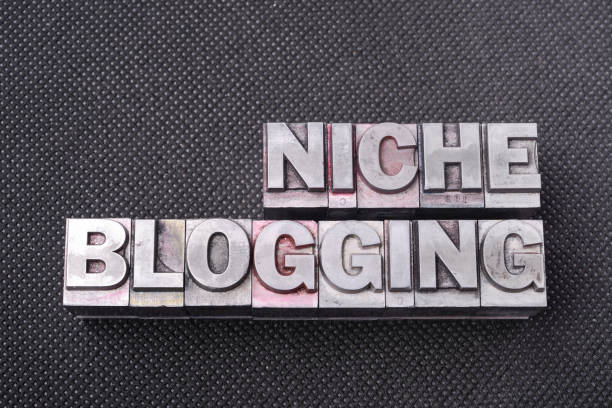
When considering how to start a good blog that also has the potential to be highly profitable, choosing the right niche is crucial. Some blog niches tend to be more lucrative than others due to their high demand and potential for monetization. Here are some of the most profitable blog niches:
- Personal Finance: Blogs about saving money, investing, managing debt, and achieving financial independence tend to attract a lot of readers. They offer ample opportunities for affiliate marketing with financial products and services, and the audience is often willing to invest in financial education and tools.
- Health and Wellness: This niche covers topics like fitness, nutrition, mental health, and general well-being. It’s a perennially popular niche with diverse monetization options, including affiliate marketing, sponsored content, and selling health-related products or courses.
- Technology and Gadgets: As technology continues to advance, there’s a growing demand for content on the latest gadgets, tech news, and reviews. This niche can be monetized through affiliate sales of tech products, sponsored posts from tech companies, and advertisements.
- Business and Marketing: Blogs focusing on business strategies, entrepreneurship, online marketing, and startup advice can attract a professional audience with the potential for high earnings through sponsored content, professional services, and business-related affiliate programs.
- Travel: Although competitive, the travel niche can be quite profitable. It offers opportunities for sponsored posts, affiliate marketing with travel agencies, accommodation, and travel gear, as well as potential partnerships with tourism boards.
- Food and Cooking: This niche can be monetized through cookbook sales, affiliate marketing with kitchen gadgets, sponsored content with food brands, and even online cooking classes or workshops.
- Lifestyle and Fashion: These blogs can earn through sponsored posts, affiliate marketing in fashion and beauty, collaborations with lifestyle brands, and even launching their own product lines.
When deciding how to start a good blog in a profitable niche, it’s important to balance your interests and expertise with the niche’s potential for monetization. Passion for your subject will shine through in your content, which is key to attracting and retaining a dedicated readership. Additionally, consider the competition in your chosen niche and think about how you can offer unique value to stand out.
Question #12 What is a Realistic Income From Blogging?

A realistic income from blogging can vary greatly and depends on several factors, including the niche, the audience, the monetization strategies employed, and how much time and effort are put into the blog. When considering how to start a good blog, it’s important to set realistic income expectations, especially in the initial stages.
For many bloggers, especially those just starting out, earning a few hundred dollars a month is a realistic initial goal. This income typically comes from a combination of advertising revenue, affiliate marketing, sponsored posts, and perhaps selling digital products or services.
As the blog grows in terms of traffic and audience engagement, income can increase substantially. Experienced bloggers with a strong presence in their niche and a significant number of monthly visitors can earn several thousand dollars per month. In these cases, income streams are usually diversified and may include more lucrative deals, such as high-paying affiliate programs, partnerships, and even creating and selling their own products or courses.
It’s also worth noting that blogging income can be quite variable. It often takes time to build up a steady stream of earnings, and there can be fluctuations based on factors like search engine algorithm changes, seasonal trends in blog traffic, and evolving reader interests.
I started blogging 5 years ago and below are my earnings in AUD$ P.A with 3 blogging websites:
- 2019 – $11, 235.00
- 2020 – $14, 605.00 = 30% Growth
- 2021 – $ 26,289.00 = 80% Growth (I am starting to gain authority in my niches)
- 2022 – $55,206.00 = 110% Growth (Social Media Channels helped massively here)
- 2023 – $74,528.00 = 35% Growth (Googles new rules slowed us down this year)
- 2024 – With everything now complying to Googles new system I project somewhere between a 40 – 50% growth with a new blogging website (This one) coming onboard.
You can check out our other 3 sites below.
In summary, while learning how to start a good blog, it’s realistic for beginners to aim for modest earnings initially, with the potential for this to grow significantly as they gain more experience, build their audience, and refine their monetization strategies. However, it’s important to remember that blogging is rarely a quick path to wealth; it requires patience, consistency, and a lot of hard work.
Question #13 How Much do Bloggers Make Per 1,000 Views?
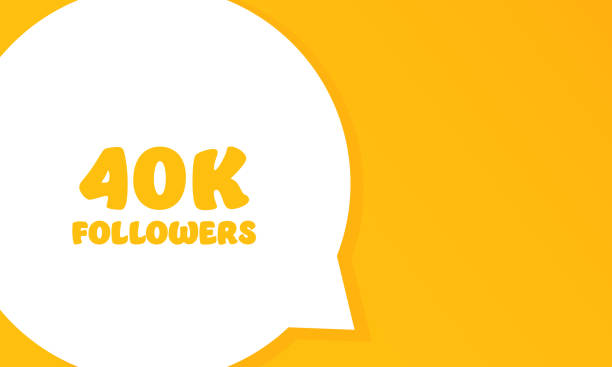
When you’re figuring out how to start a good blog, understanding potential earnings is a key part of your planning. The amount bloggers make per 1,000 views, often referred to as the CPM (Cost Per Mille), can vary widely based on several factors.
The income from 1,000 views largely depends on the blog’s niche, the geographical location of the audience, the type of ads displayed, and the monetization methods in place. For instance, blogs in more lucrative niches like finance, marketing, or technology might have a higher CPM due to the high value of their associated keywords and affiliate opportunities.
On average, using advertising networks like Google AdSense, bloggers might earn anywhere from a few dollars to $30 or more per 1,000 views. However, this is a broad range and can vary. Niche blogs with highly targeted content and an audience from countries with higher ad spending, like the US or UK, might see higher earnings at the upper end of this range.
Beyond advertising, bloggers also earn through affiliate marketing, sponsored content, selling digital products or services, and memberships. These can significantly augment income beyond what is earned from views alone.
As for a realistic income from blogging, beginners should temper their expectations. Initially, a blog might earn a modest amount, but with consistent effort, quality content, and effective monetization strategies, it can grow into a substantial income. Some bloggers earn a few hundred dollars per month, while others, particularly those who have been blogging for years and have high traffic, might earn thousands or even more each month.
In conclusion, while learning how to start a good blog, it’s important to understand that income can vary greatly. Success in blogging, both in terms of audience engagement and financial return, often comes down to the niche you choose, the quality and consistency of your content, and your ability to effectively monetize your blog traffic.
Question #14 Which is Better YouTube or Blogging?

Deciding whether YouTube or blogging is better depends on various factors, including your content, audience preferences, and your personal strengths. Both platforms have their advantages and can be effective depending on your goals and skills. When considering how to start a good blog or a YouTube channel, here are some points to consider:
- Content Nature:
- Blogs are ideal for written content, especially topics that require in-depth explanation, analysis, or storytelling. If you have a knack for writing and enjoy expressing ideas through text, blogging might be more suitable.
- YouTube excels with visual and auditory content. If your content is more engaging when demonstrated or spoken, like DIY projects, cooking tutorials, or vlogs, YouTube could be the better choice.
- SEO and Discoverability:
- Blogs can be highly effective for SEO, as search engines are adept at crawling text-based content. A well-optimized blog post can attract significant organic traffic over time.
- YouTube, being the second largest search engine, also offers excellent discoverability, especially for topics that people prefer to learn about through videos.
- Monetization:
- Blogs have diverse monetization options like affiliate marketing, sponsored content, advertisements, selling digital products, and memberships.
- YouTube monetization primarily comes from ad revenue, though you can also earn through sponsorships, memberships, and merchandise sales.
- Audience Engagement:
- Blogs allow for in-depth interaction through comments and can be excellent for building a community around written content.
- YouTube’s visual nature often leads to higher engagement rates and can be more effective in building a personal connection with the audience.
- Ease of Starting:
- Starting a blog can be easier and less intimidating, as it requires less equipment and technical skill compared to video production.
- YouTube requires a basic understanding of video editing and filming, and the platform is highly competitive, requiring high-quality content to stand out.
- Longevity and Content Lifespan:
- Blog posts can remain relevant and continue to attract traffic years after they are published, especially if they are evergreen content.
- YouTube videos can also have a long lifespan, but they might need to be more frequently updated to stay in line with the platform’s algorithm and viewer preferences.
In essence, whether YouTube or blogging is better depends on your content type, personal strengths, and the preferences of your target audience. Both platforms can be highly effective, and in some cases, creators even choose to do both, using the blog to supplement and drive traffic to their YouTube content and vice versa. Each platform requires a unique approach, so when considering how to start a good blog or YouTube channel, think about where your content will shine brightest and where you can most effectively connect with your audience.
Question #15 What Will Replace Blogging?

Predicting what will replace blogging involves looking at emerging trends in content creation and consumption. While it’s unlikely that blogging will be entirely replaced in the near future, considering the evolving digital landscape is essential when learning how to start a good blog. Here are some trends and platforms that are gaining traction:
- Video Content: Platforms like YouTube and TikTok are on the rise, offering more dynamic and engaging ways to consume content. Videos can convey information more interactively and are often preferred for tutorials, reviews, and entertainment.
- Podcasting: The popularity of podcasts has soared, providing a convenient way for audiences to consume content on the go. Podcasts are particularly effective for storytelling, interviews, and discussions on niche topics.
- Social Media Micro-Blogging: Platforms like Twitter and Instagram are increasingly used for micro-blogging. These platforms allow for quick, real-time updates and have a broad reach, making them a popular alternative to traditional blogging.
- Interactive Content Platforms: Newer platforms that allow for more interactive content, like webinars, live streams, and interactive articles, are emerging. These platforms offer real-time engagement and can be more immersive than traditional blogs.
- AI and Machine Learning Driven Content: As AI and machine learning technology advances, there’s potential for new types of content generation and consumption. This could include personalized content feeds or AI-generated content tailored to individual preferences.
- Ephemeral Content: Platforms like Snapchat and Instagram Stories focus on short-lived content that disappears after a set period. This type of content can create a sense of urgency and exclusivity.
- Newsletter Platforms: Services like Substack are reviving the newsletter format, allowing writers to directly reach their audience’s inbox. This format is gaining popularity for its directness and the ability to build a dedicated subscriber base.
In summary, while none of these trends are likely to completely replace blogging, they are important considerations when thinking about how to start a good blog. A successful modern blog may need to adapt and incorporate elements of these emerging trends to stay relevant and engaging to its audience. As the digital landscape evolves, so too must the approaches to content creation and distribution.
Question #16 How Old Are Most Bloggers?

The age range of bloggers is quite diverse, reflecting the wide appeal of blogging as a medium for personal expression, information sharing, and business. In the context of how to start a good blog, it’s interesting to note that bloggers span across various age groups, each bringing unique perspectives based on their life experiences and technical savvy.
- Young Adults (20s and 30s): A significant portion of bloggers falls into this age group. They often bring fresh, contemporary perspectives and are typically adept at using social media to enhance their blog’s reach. They’re also more likely to cover trending topics, lifestyle, fashion, and technology.
- Middle-Aged Adults (40s and 50s): This demographic is also well-represented in the blogging world. These bloggers often share expertise in specific fields like business, finance, health, and family life. Their blogs can provide more in-depth, experience-based content.
- Seniors (60s and above): While a smaller group, senior bloggers are a growing segment. They often blog about retirement life, travel, hobbies, and share wisdom from their life experiences.
- Teenagers and Young Adults (Teens and early 20s): Younger bloggers are increasingly prevalent, especially in niches like fashion, gaming, and student life. They often bring a youthful energy and are quick to adopt new social media platforms and trends.
When considering how to start a good blog, age can be an advantage in various ways. Younger bloggers might have a better grasp of current trends and social media dynamics, while older bloggers can offer depth, expertise, and a different perspective based on their life experiences. The diversity in age among bloggers shows that blogging is accessible and relevant to a wide range of people, and success in blogging is less about age and more about delivering content that resonates with your target audience.
*Note: I started blogging online at 55, and now at 60 it just goes to show “You Can Teach an Old Dog New Tricks.”
related article – how to start a blog in your retirement
How to start a blog in your retirement, you ask? Well, retirement is indeed a time for relaxation, picking up new hobbies, and surprisingly, for blogging too! Absolutely, it’s not… Read More>>

Question #17 Can Anonymous Bloggers Make Money?

Yes, anonymous bloggers can make money, and this fact is an important consideration when exploring how to start a good blog. Blogging anonymously doesn’t necessarily hinder the potential to earn income, though it may affect the strategies used for monetization. Here’s how anonymous bloggers can navigate the blogging world profitably:
- Quality Content is Key: Regardless of anonymity, the quality of your content is crucial. An anonymous blog with engaging, informative, and well-written posts can attract a significant audience, which is the foundation for monetization.
- Monetization Strategies: Common monetization methods like affiliate marketing, advertising (such as Google AdSense), and sponsored posts are still viable for anonymous bloggers. These methods don’t require personal disclosure and are based on your blog’s content and traffic.
- Building Trust with Audience: Even without revealing your identity, you can build trust through the consistency and reliability of your content. Offering valuable insights, accurate information, and engaging posts can establish your credibility.
- Niche Selection: Some niches might be more conducive to anonymous blogging. For instance, topics like personal finance, mental health, or certain hobbies can be effectively covered without personal identification.
- Use of Pseudonyms: Many anonymous bloggers use pseudonyms, allowing them to build a recognizable identity without revealing their actual names. This can help in establishing a brand around your blog.
- Networking and Collaboration: Anonymous bloggers can still network with other bloggers and participate in community events, discussions, and social media, albeit under their blog’s name or pseudonym.
- Challenges in Personal Branding: One challenge for anonymous bloggers can be the limitations in personal branding, which is a powerful tool for many bloggers. However, this can be mitigated by strong branding around the blog itself.
In summary, when considering how to start a good blog as an anonymous writer, focus on creating high-quality content, choose effective monetization strategies that don’t require personal disclosure, and build a strong brand around your blog or pseudonym. While there may be some limitations, anonymity does not preclude the possibility of making money from blogging.
Question #18 Which is Better, a Blog or Website?

When comparing a blog with a website, the better choice depends on your specific goals, content, and audience engagement strategy. Understanding this distinction is important when considering how to start a good blog or website. Here’s a breakdown of their differences and potential benefits:
Purpose and Content
- A blog is typically dynamic, featuring regularly updated content like articles, opinions, or stories. If your aim is to consistently provide fresh content, share insights, or engage in storytelling, starting a good blog is likely the better choice. Blogs are excellent for building a community and encouraging interaction.
- A website, on the other hand, is often more static and informational. It’s ideal for presenting a business, showcasing a portfolio, or providing detailed information about products or services. If your primary goal is to offer a professional online presence or e-commerce platform, a website may be more suitable.
SEO and Traffic Generation
- Blogs are generally more effective for search engine optimization (SEO) due to their regular content updates, which keep the site fresh and more likely to be indexed frequently by search engines. This can lead to higher traffic potential.
- Websites can also be optimized for search engines, but they may require more effort to maintain consistent traffic since the content doesn’t change as frequently.
User Engagement
- Blogs often foster greater user engagement through comments, shares, and discussions. They provide a platform for you to establish a personal or professional voice and build a community around your content.
- Websites, while they can include elements like contact forms or customer reviews, typically have less scope for ongoing user engagement.
Monetization
- Blogs can be monetized in various ways, such as through advertising, affiliate marketing, sponsored content, or selling digital products. The regular traffic that comes from frequent content updates can enhance monetization opportunities.
- Websites, especially e-commerce sites, are monetized through the sale of products or services. They can be optimized for conversions and sales, making them potentially more direct in terms of monetization.

Maintenance and Updating
- Blogs require regular content creation, which can be time-consuming. However, this ongoing effort is essential for building and maintaining an audience.
- Websites may require less frequent updates, depending on the type of site. Once set up, a website may only need occasional maintenance or updates.
In conclusion, whether a blog or a website is better depends on your objectives. If your goal is to establish an ongoing dialogue with an audience, share regular content, and build a community, learning how to start a good blog is likely the best route. If your primary need is for a static, professional online presence or an e-commerce platform, then a website would be more appropriate. Some successful online presences effectively combine both – using a blog section within a website to drive traffic and engage users, while the rest of the website serves more static, informational purposes.
Question #19 How Do You Know if a Blog is Popular?
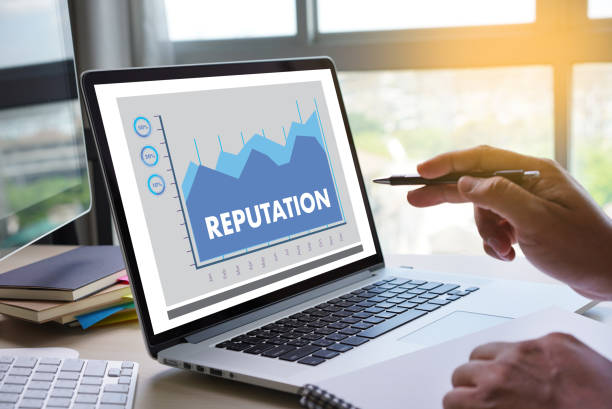
Determining the popularity of a blog is important, not just for assessing competition but also for gathering insights and inspiration on how to start a good blog yourself. Here are several indicators that can help you gauge a blog’s popularity:
- Traffic Statistics: The most direct measure of a blog’s popularity is its traffic – the number of visitors and page views it receives. Tools like Alexa Rank or SimilarWeb can provide estimates of a blog’s traffic.
- Engagement Levels: High levels of user engagement, such as comments, shares, and likes, indicate that the blog’s content resonates with its audience. A popular blog often has an active community of readers who regularly interact with the content.
- Social Media Presence and Activity: Check the blog’s social media profiles. A high number of followers and regular, engaged interactions on platforms like Facebook, Instagram, and Twitter are signs of a popular blog.
- Quality and Frequency of Posts: Popular blogs usually have consistent and frequent posting of high-quality, relevant content. The writing style, the value provided in the posts, and the professionalism of the content presentation are also indicators.
- Backlinks and Online Mentions: The number of backlinks (other websites linking to the blog) can indicate its popularity. Use tools like Moz’s Link Explorer to check backlinks. Additionally, mentions in media or other reputable blogs can be a sign of a blog’s influence and popularity.
- Search Engine Rankings: A blog that ranks high on search engine results pages (SERPs) for its key topics is likely popular. High rankings usually correlate with high traffic and authority in a subject area.
- Subscriber Count: If available, the number of subscribers to the blog’s newsletter or RSS feed can be a good indicator of its popularity and the loyalty of its readership.
- Awards and Recognitions: Recognition in the form of awards or features in reputable publications can also be an indicator of a blog’s popularity and credibility.
- Influencer Collaborations: Popular blogs often collaborate with influencers or other well-known blogs. Such collaborations are a sign of a blog’s standing and reach in its niche.
- User Reviews and Testimonials: Positive reviews or testimonials from readers or industry experts can indicate a blog’s popularity and impact.
When learning how to start a good blog, analyzing these factors in popular blogs can provide valuable insights into what works well in terms of content, audience engagement, and SEO strategies. This analysis can help you emulate successful elements in your own blog while also carving out your unique niche and style.
How To Start A Good Blog Final Question!
Question #20 Can I Start a Blog About my Life?

Yes, you can definitely start a blog about your life, and this idea fits well into the journey of how to start a good blog. Personal blogs can be highly engaging and offer a unique perspective to your audience. Here are some tips to help you create a successful life-focused blog:
- Find Your Unique Angle: While the blog is about your life, it helps to have a specific angle or theme that sets your blog apart. This could be based on your experiences, interests, challenges, or a particular aspect of your life you want to focus on.
- Relatable Content: Share stories and experiences that your readers can relate to. This builds a connection with your audience. Be authentic and honest in your storytelling.
- Consistency is Key: Regular updates are crucial in how to start a good blog. Plan a blogging schedule that works for you and stick to it, whether it’s daily, weekly, or bi-weekly posts.
- Engage with Your Readers: Encourage and respond to comments on your blog. Engaging with your audience can build a community and make your blog more appealing.
- Use Visuals: Incorporate photos, videos, or graphics to make your blog posts more engaging. Visual elements can help illustrate your stories and bring them to life.
- Promote Your Blog: Use social media, email newsletters, and other platforms to promote your blog and reach a wider audience.
- Keep SEO in Mind: While personal blogs are more about storytelling, basic SEO practices can help your blog be more discoverable. Use relevant keywords, optimize your images, and structure your posts for readability.
- Privacy Considerations: Decide how much personal information you want to share. Remember that the internet is a public space, so consider the implications of sharing personal details.
- Monetization: If you’re interested in monetizing your blog, consider methods like affiliate marketing, sponsored posts, or Google AdSense. Choose options that align with your content and audience.
Starting a blog about your life can be a fulfilling way to express yourself and connect with others. By focusing on creating relatable, engaging content and building a community around your blog, you can create a successful platform that resonates with your audience.
How To Start A Good Blog Wrap Up!
In concluding our comprehensive journey through “How To Start A Good Blog – 20 Burning Questions Answered!”, we’ve traversed the essential pathways and uncovered the pivotal strategies that turn the dream of blogging into a tangible, successful reality. From selecting the perfect niche, mastering SEO, to effective monetization tactics, our exploration has been thorough and insightful.
We’ve seen how diverse the blogging world is, welcoming voices from all walks of life. My personal journey, starting a successful blog at the age of 55, stands as a testament to this. It proves unequivocally that age is but a number in the digital realm. Blogging is not just a young person’s game; it’s a platform where experience, wisdom, and life stories like mine find resonance and value. If I can dive into this digital adventure and carve out a sustainable living, so can you, regardless of where you are in life’s journey.
This article wasn’t just about answering questions; it was about breaking barriers and setting a foundation for a fulfilling blogging journey. We’ve highlighted that with dedication, creativity, and a willingness to learn, anyone can create a blog that not only shares their unique perspective but also becomes a profitable venture.
As we wrap up, remember that your blog is a canvas for your thoughts, a platform for your voice, and a bridge to connect with like-minded individuals across the globe. It’s never too late to start, and the digital world is richer for having diverse voices like yours in it. So, take these tips, embrace your journey, and let the world hear your unique story through your blog. Remember, if I can do it at 60, so can you!
Behind every great endeavor stands a visionary, and Blogger Boss is no exception. Mark, the founder of Blogger Boss, is more than just a figurehead; he’s a mentor, a guide, and a fellow traveler on the road to blogging success. Mark’s philosophy is simple: your success is his success. With years of experience navigating the highs and lows of the blogging world, Mark brings a wealth of knowledge and a genuine passion for teaching to the table.
Through one-on-one coaching sessions, Mark offers personalized advice tailored to your blog’s unique needs and goals. Whether you’re wrestling with technical issues, seeking clarity on your content strategy, or looking for ways to monetize your passion, Mark is there, every step of the way, to ensure your journey is not just fruitful but enjoyable.
